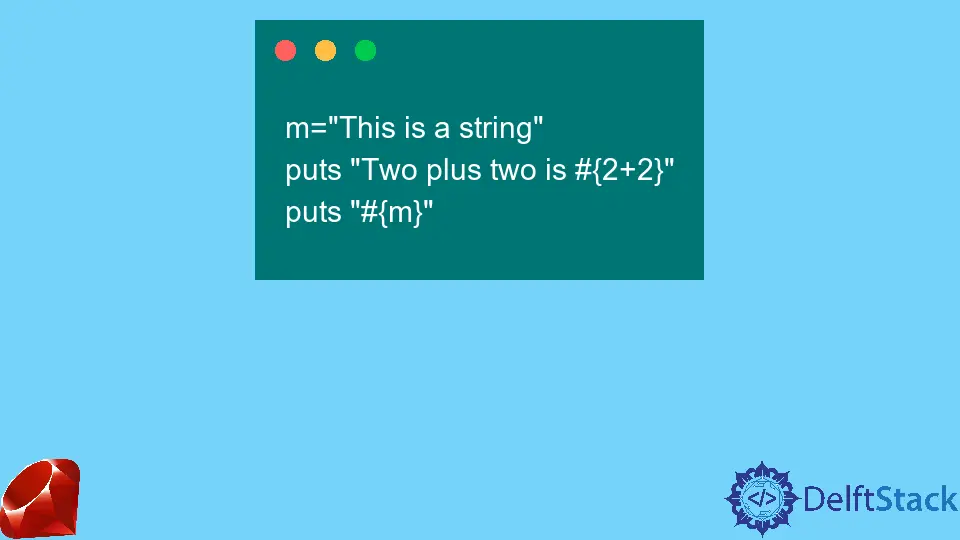Literal for Double-Quoted Strings in Ruby
- Understanding Double-Quoted Strings
- Escaping Characters in Double-Quoted Strings
- Advantages of Using Double-Quoted Strings
- Conclusion
- FAQ

When it comes to programming in Ruby, understanding how to work with strings is essential. One of the most common ways to define strings in Ruby is by using double quotes. But did you know that double-quoted strings in Ruby have special features?
This tutorial will dive deep into the literal for double-quoted strings in Ruby, exploring how they differ from single-quoted strings, their interpolation capabilities, and how to escape characters. Whether you’re a beginner or looking to refresh your knowledge, this guide will provide you with practical examples and clear explanations to enhance your Ruby programming skills.
Understanding Double-Quoted Strings
In Ruby, strings can be created using either single quotes or double quotes. However, double-quoted strings come with a unique set of features that make them particularly useful. The most notable difference is that double-quoted strings allow for interpolation and special character sequences.
Interpolation in Double-Quoted Strings
Interpolation is one of the most powerful features of double-quoted strings. It allows you to embed Ruby expressions directly within a string. This means you can insert variables or even method calls into your strings seamlessly. Let’s take a look at a simple example.
name = "Alice"
greeting = "Hello, #{name}!"
puts greeting
Output:
Hello, Alice!
In this example, we define a variable name and then use it within a double-quoted string. The #{name} syntax tells Ruby to evaluate the expression and insert the result into the string. This is particularly handy when you want to create dynamic strings based on variable values.
Special Character Sequences
Double-quoted strings also support special character sequences, which can be used to include characters that would otherwise be difficult to represent. For instance, if you want to include a newline or a tab character, you can easily do so with escape sequences. Here’s how it works:
message = "Hello,\nWelcome to Ruby programming!"
puts message
Output:
Hello,
Welcome to Ruby programming!
In this case, the \n sequence creates a new line in the output. Similarly, you can use \t for a tab space. This flexibility allows for better formatting of strings, making your output more readable.
Escaping Characters in Double-Quoted Strings
While double-quoted strings are versatile, there are instances where you might want to include characters that have special meanings, like quotes or backslashes. To do this, you can use the backslash (\) to escape these characters.
Escaping Quotes
If you want to include double quotes within a double-quoted string, you must escape them. Here’s an example:
quote = "He said, \"Hello, world!\""
puts quote
Output:
He said, "Hello, world!"
In this code, we use the backslash to escape the double quotes around “Hello, world!”. This tells Ruby to treat these quotes as literal characters rather than string delimiters.
Escaping Backslashes
Similarly, if you need to include a backslash in your string, you also need to escape it. For example:
path = "C:\\Users\\Alice\\Documents"
puts path
Output:
C:\Users\Alice\Documents
Here, each backslash is escaped with another backslash, allowing the string to be interpreted correctly. This is particularly useful when working with file paths or regular expressions in Ruby.
Advantages of Using Double-Quoted Strings
Using double-quoted strings in Ruby offers several advantages, especially when it comes to readability and functionality. Here are some of the key benefits:
Enhanced Readability
Double-quoted strings can be more readable, especially when you include variable values or special formatting. This makes your code easier to understand at a glance. For instance, embedding variables directly into strings eliminates the need for string concatenation, which can clutter your code.
Flexibility with Special Characters
The ability to use escape sequences for special characters allows you to format strings in a way that enhances clarity. Whether you’re creating multi-line strings or including tabs, double-quoted strings provide a straightforward way to manage complex output.
Dynamic Content Creation
With interpolation, double-quoted strings make it simple to create dynamic content. You can build messages, generate HTML, or format output based on user input without additional string manipulation. This capability is particularly valuable in web development or when generating reports.
Conclusion
Double-quoted strings in Ruby are a powerful tool that every Ruby programmer should master. Their ability to support interpolation and special character sequences makes them versatile for various coding scenarios. Whether you’re crafting user-friendly messages or managing complex data, understanding how to use double-quoted strings effectively will enhance your programming skills. By practicing these concepts, you’ll become more proficient in Ruby and be better prepared to tackle more complex programming challenges.
FAQ
-
What is the main difference between single-quoted and double-quoted strings in Ruby?
Double-quoted strings allow for interpolation and support special character sequences, while single-quoted strings do not. -
How do I include a variable in a double-quoted string?
Use the syntax#{variable_name}within the double quotes to include the variable’s value. -
Can I use escape sequences in single-quoted strings?
Yes, but single-quoted strings only recognize a few escape sequences, such as\\for a backslash and\'for a single quote. -
What happens if I forget to escape a special character in a double-quoted string?
If you forget to escape a special character, Ruby will interpret it as a string delimiter or command, potentially causing syntax errors. -
Are there any performance differences between single-quoted and double-quoted strings?
Generally, single-quoted strings are slightly more performant since Ruby doesn’t need to check for interpolation or special character sequences. However, the difference is negligible for most applications.
Aminul Is an Expert Technical Writer and Full-Stack Developer. He has hands-on working experience on numerous Developer Platforms and SAAS startups. He is highly skilled in numerous Programming languages and Frameworks. He can write professional technical articles like Reviews, Programming, Documentation, SOP, User manual, Whitepaper, etc.
LinkedIn